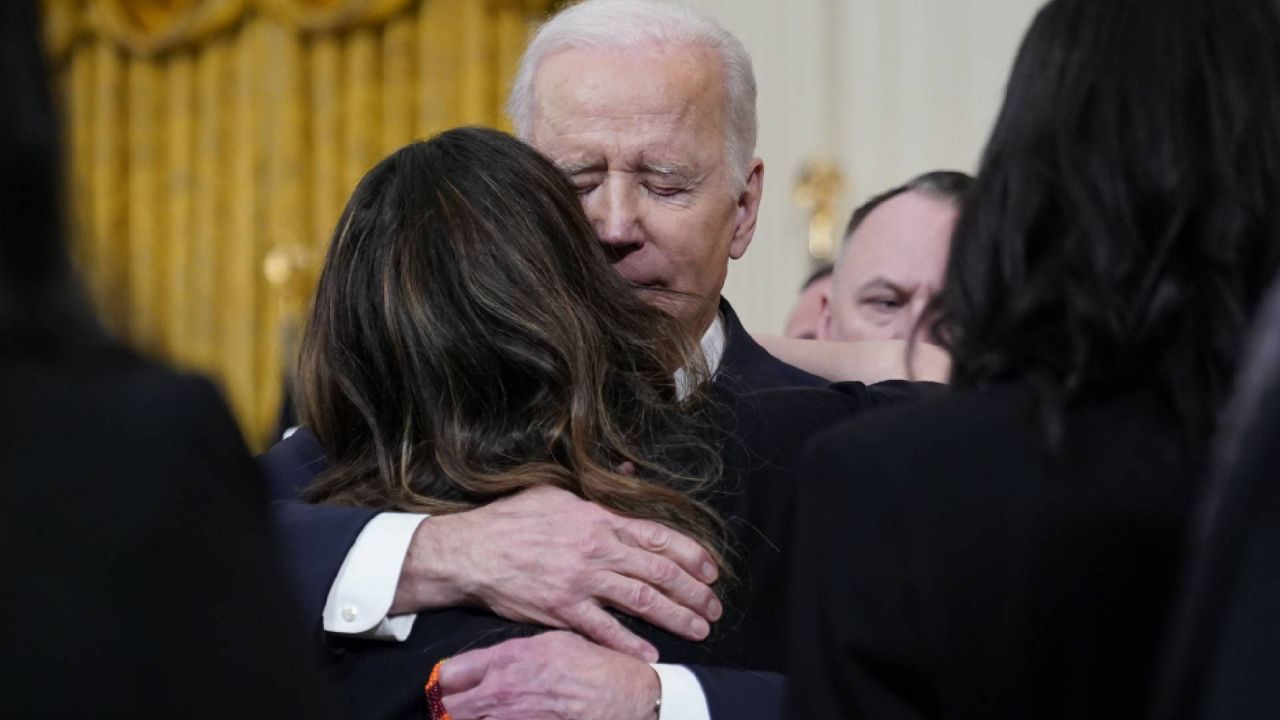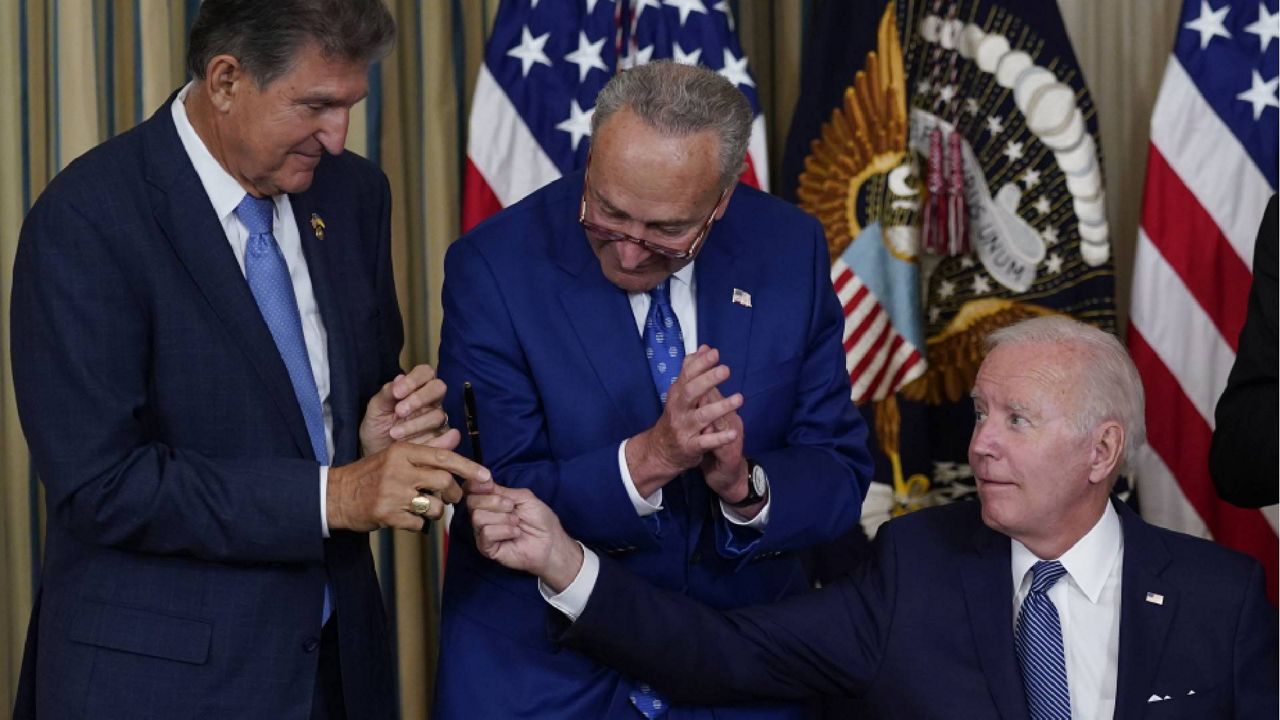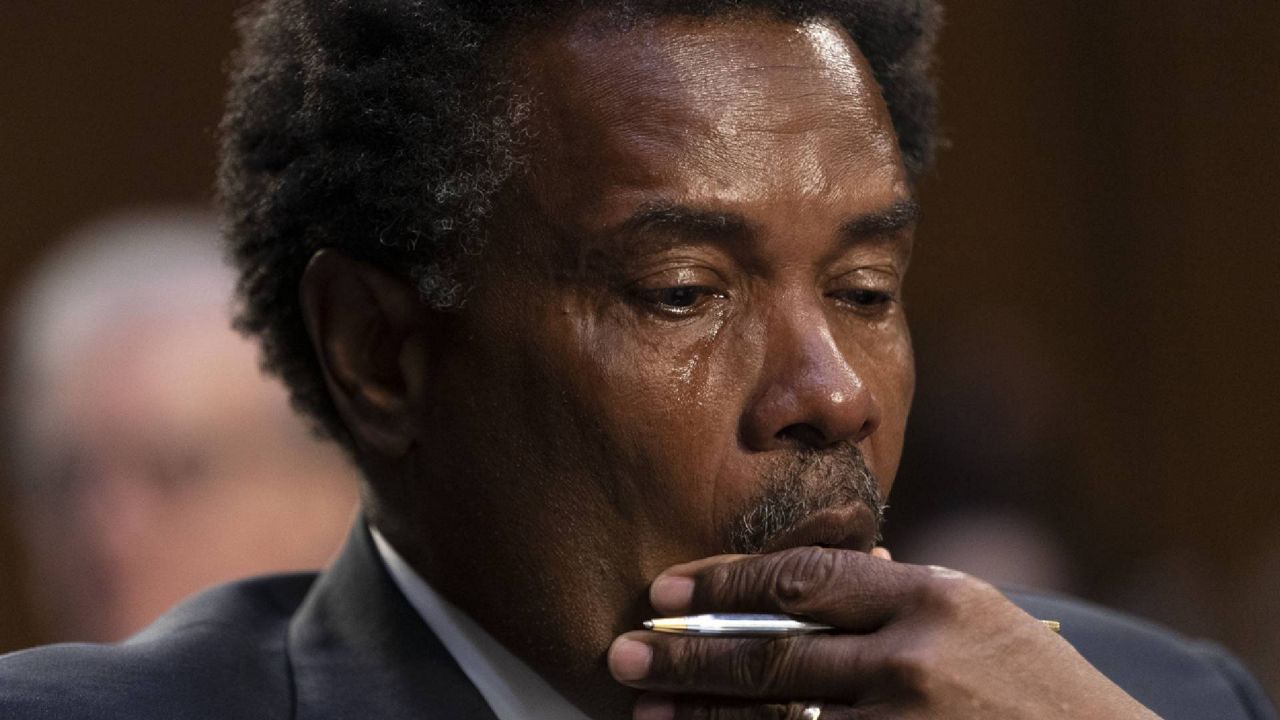President Joe Biden on Wednesday gathered advocates, lawmakers and survivors of domestic violence at the White House to mark the reauthorization of a domestic violence law he first worked on as a senator in the 1990s, which extends protections for victims of domestic and sexual violence.
The Violence Against Women Act (VAWA) passed as part of the $1.5 trillion government funding bill passed by Congress last week, after a rare bipartisan push to reup the legislation, which lapsed nearly three years ago due to partisan disagreements.
Biden on Wednesday reflected on the legislation he helped author back in 1994, the first federal legislation of its kind with an aim to end violence against women.
“As a society, we literally looked away. We looked away. In many places it wasn't a crime,” Biden said of domestic violence before VAWA.
He credited survivors for their courage to testify publicly before the original law was passed, something he said was critical.
“The only way we could change the culture was by shining an ugly, bright light on it and speaking its name,” Biden said at the White House. “Can you imagine being among the first to stand before the whole damn world? Millions of people hearing you recite how you were abused?”
Biden thanked the advocates in the room for continuing to fight for the legislation even when it expired.
“This reauthorization is testament to the power in your voices and your tireless dedication to changing things,” the president said.
In the three years since the Violence Against Women Act was last authorized, members of Congress, advocates and even Angelina Jolie — who attended the White House event on Wednesday — worked to not only reauthorize the law but to modernize and update it. The new version includes protections for Native American, transgender and immigrant women that had been lacking.
Sen. Joni Ernst, R-Iowa, a survivor of sexual assault herself, teared up earlier Wednesday the Senate floor as she spoke about the bill, which Biden signed into law on Tuesday.
“This bill is proof that bipartisanship is not dead, and Congress can tackle these tough issues,” she said.
Ernst addressed survivors: “For those who have not come to terms with their abuse. And for those who feel trapped in their situation. For those who have lost their battle. Please know that you are not and will never be forgotten. The Violence Against Women Act is for you.”
The new version of the law will strengthen rape prevention and education efforts as well as training for those in law enforcement and the judicial system.
Biden introduced the original Violence Against Women Act in June 1990 when serving as chairman of the Senate Judiciary Committee. A subsequent version was eventually included in a sweeping crime bill that then-President Bill Clinton would sign into law four years later. Congress has reauthorized the Violence Against Women Act three times since.
The original bill created the Office on Violence Against Women within the Justice Department, which has awarded more than $9 billion in grants to state and local governments, nonprofits and universities over the years. The grants fund crisis intervention programs, transitional housing and legal assistance to victims, among other programs. Supporters said the reauthorization would also boost spending for training law enforcement and the courts.








